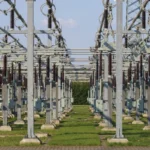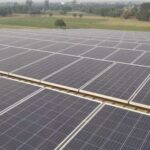India Solar Energy Policies: Key Updates and Government Initiatives
India Solar Energy Policies: Key Updates and Government Initiatives
India is one of the leading countries in terms of solar energy development, having become the fastest-growing market for solar power globally. India’s solar energy capacity has more than quadrupled in the past five years, increasing from 13,114 MW in 2017 to 57,705 MW in 2022.
India has an ambitious target to achieve Net Zero Emissions by 2070, in addition to attaining the short-term targets which include, Increasing renewables capacity to 500 GW by 2030.
To meet this goal, the government has introduced several policy initiatives and incentives such as increased financing, state initiatives, and tax benefits. These policies have helped to reduce the costs associated with solar energy projects, making them more attractive investments for both domestic and international investors. Furthermore, India’s strong technical know-how and its extensive infrastructure has enabled it to set new standards in solar energy production. As a result of these efforts, India is now a major exporter of solar energy, with most of its exports going to neighboring countries such as Bangladesh, Nepal and Sri Lanka.
Benefits of solar energy for India
1. Increased energy independence
Solar energy provides India with a source of renewable energy that can be used to reduce its dependence on fossil fuels and other imported resources.
2. Cost savings
Installing solar technology is becoming increasingly cost competitive in India with the decreasing prices of photovoltaic (PV) modules and other components.
3. Job creation
Solar energy projects in India are creating thousands of jobs, ranging from manufacturing to installation and maintenance.
4. Cleaner environment
By replacing traditional sources of power with solar energy, India can reduce its carbon emissions and help address climate change.
5. Improved access to electricity
Solar energy projects in rural areas are helping to fill the gap in access to electricity, providing clean and reliable power for people who don’t have access to traditional grids.
The government has introduced several policy initiatives and incentives that have helped to reduce costs, encourage adoption and attract investors towards solar energy.
Suggested Articles

What Is a Solar Power Generating System? | Complete Guide
A solar power generating system converts sunlight into electricity for residential, industrial, and commercial use. This blog explains the components, working, and benefits of solar systems, helping you understand how to harness solar energy efficiently and sustainably.

Go Off-Grid with Solar Energy: A Complete Guide
Living off-grid, more commonly defined as not having a dependence on public utilities such as electricity, sounds appealing for a lot of reasons. The idea of being self-sufficient, powering your own home with solar energy, and maybe even building that home with your own two hands can sound like a dream and a challenge for people who wish to live life on their terms.

Solar Power Park Scheme: Central Government Expands Clean Energy Initiative
The Union government plans to launch the second phase of a dedicated program to develop solar parks across the country that will aim to plug loopholes and overcome slow progress.

Perovskite: Future of Solar Cells
Discover how solar batteries store excess energy, maximize your solar system’s efficiency, and provide reliable power during outages. Learn about the types, benefits, lifespan, and maintenance tips to make the most of your solar investment.

How DISCOMs Implement Net Metering for Solar Power Plants
Discover the process of net metering implementation by DISCOMs for solar power plants. Understand the benefits, billing mechanism, and how it maximizes solar energy utilization.

Top 10 Sustainable Building Practices to Consider for Your Construction Business
The construction industry is embracing sustainability like never before. From smart design to renewable energy use, these top 10 practices ensure businesses stay competitive, compliant, and environmentally responsible.

Haryana’s GEOA 2025: A Boost for Captive Solar Plants and Wind Energy Developers
Haryana’s GEOA 2025 paves the way for growth in captive wind and solar energy projects with investor-friendly reforms.

How to Maintain Solar Power System for Homes, Industries & Commercial Buildings
A solar power generating system converts sunlight into electricity for residential, industrial, and commercial use. This blog explains the components, working, and benefits of solar systems, helping you understand how to harness solar energy efficiently and sustainably.